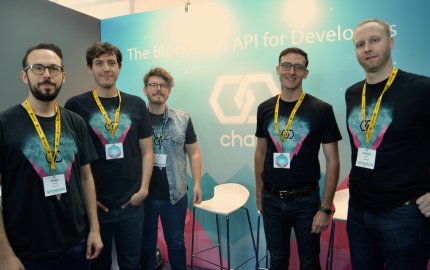Bitcoin network API

Developing for bitcoin can be a bit of a slog. The protocol was designed with transactions, not applications, in mind, and getting to grips with the technology can be intimidating, not only for the general public, but for developers too.
All of that may be about to change thanks to Chain, a new bitcoin infrastructure that could make it easier than ever for developers to build on top of the technology.
“I felt like I’d enter the weekend with a really great idea [for an application] but I’d spend three weekends just trying to get these [bitcoin] nodes running in a way that was useful for my application.”
Technological hairball
Bitcoin is often talked about it near-messianic terms as a technology. Much of it is deserved: bitcoin really is an incredible innovation in terms of creating decentralized digital infrastructure and, for the first time ever, we are able to have a decentralized digital form of money, for example.
When it comes to the code itself, however, bitcoin developers are more sober.
At the Bitcoin2014 conference, the Bitcoin Foundation’s Lead Scientist Gavin Andresen quipped that “Satoshi gave us a bit of hairball”, and later said that “the very first version of bitcoin was horribly unsecure [sic]”.
“The reason for this is that it downloads from one node at a time. If this is a slow node, too bad.”
Developer boost
Although the code is constantly being improved, Andresen is clear that the focus will continue be to ensure “the core bitcoin network processes transactions as reliably as possible.”
That leaves the door open for someone else to instead focus on making the core bitcoin network as easily accessible to developers as possible.
“There’s nothing broken per se about running your own bitcoin infrastructure. It’s just very time consuming, very cumbersome and very expensive” said Chain’s Adam Ludwin, who is perhaps most well-known for being an early investor in Vine. “That has limited the number of developers who are willing to jump in and build something on nights and weekends.”
Instead of each developer having to start from scratch, Chain will do a lot of the heavy lifting for them. In effect, Chain is a copy of the data on the block chain that is organized and saved in a way that’s less optimised for processing transactions and more optimised for building applications.
“The [bitcoin] community is better served, in our opinion, by having one company that’s well understood, trusted, open source and who does nothing but focus on the reliability and strength of this [new data] layer, ” argues Ludwin.






